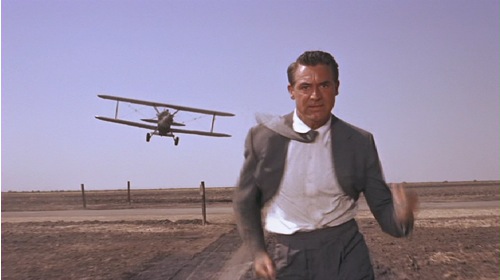Punks that Could Work
No, I’m not talking about rebellious youth or rock music, I’m talking about settings like steampunk which simulate futuristic technological capabilities using technology that couldn’t possibly produce them. Steampunk is a setting that is embarrassingly popular at this point, much to its misfortune. Steampunk has become so common, even in mainstream films like the upcoming and inevitably terrible Jonah Hex, that it has lost all of its originality and novelty.
It’s a real shame, though, because as overused as it is, steampunk is an aesthetically interesting setting, and carries a really cool tone when you handle it well. Well, it is possible to freshen it up, though, since there are plenty of untouched historical periods to work with, and while the industrial era does evoke a sense of budding technological wonders, here are some others that are worth exploring.

Bronze Punk
While the Roman Empire easily surpassed Ancient Greek civilization in terms of the practical application of technology, the Greeks had a certain edge in terms of the bizarre and theoretical, with great philosophers wax ing about advanced pseudo-scientific wonders like Aristotle’s elements or Archimedes laser weapons. Imagine a setting where flying machines ran on the simple machines augmented by burning pitch, flying amid a world of ancient paganism and Spartan warriors.
Dark Punk
The Dark Ages aren’t an immediately intuitive setting in which to incorporate incredible technological capabilities, but that’s kind of what makes it a perfect age for it. Just incorporate whatever random technology you want and mention that it was “made by the alchemists” or “from the East”. The Dark Ages are rarely used in fiction because they have a reputation for being static and boring, which they were, but maybe they’d be interesting if you incorporated alchemical death rays, and it would be a nice alternative to quasi-Tolkien-esque generic pseudo-medieval fantasy.
Stone Punk
Of course, you can always take this to it’s full conclusion and put ludicrous technology capabilities in the hands of stone age proto-humans. They could use massively intricate stone carvings to make powerful machines and power them by intense physical effort. Of course, basically this is just The Flintstones.
So, maybe Stone Punk isn’t great, but I guess the point I’m going for is that, while steampunk is kind of done, there really is no reason why more historical punks can’t be used. I mean, it’s not like floating steam-powered death stars are any more believable than Fred Flintstones foot-powered car, so why can’t we get out of the fake Victorian era and experience history’s full bounty of fake eras?
Well, I think we should. Now, if you’ll excuse me, I have to go plot a fictional setting where advanced technology exists in the 1980’s: moronpunk.
Labels: Eras, Fiction, Flintstones, Jonah Hex, Steampunk




